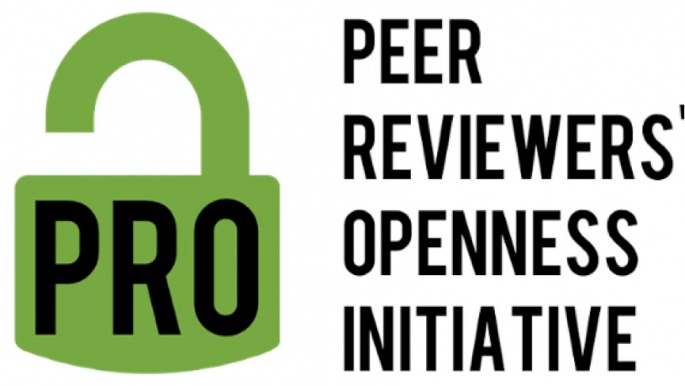Have you signed up for openness in research?
09/05/2016

.jpg)
Peer Reviewers’ Openness Initiative calls for transparency in research, asking scientists to apply certain minimal standards by 2017
We blogged recently about F1000Research – what it is and why transparent peer-review on a public platform is important.
Back in January a group of researchers led by Cardiff University launched an initiative to reshape the scientific landscape through the spread of open and transparent research practices.
They came up with the Peer Reviewers’ Openness Initiative (PRO) (detailed in a Royal Society Open Science paper online) that asks scientists to pledge to apply “certain minimal open research standards to the manuscripts they review” by January 2017.
These standards involve researchers making all data and materials publicly open, as well as documents containing details for interpreting any files or codes, the locations of these files, and justifications for incomplete release of data.
The PRO strategy uses the role of the reviewer as an instrument for change, asking reviewers to withhold from comprehensively reviewing manuscripts that don’t meet these minimal standards.
Central to the initiative is the idea that reviewers can engage authors on scientific openness during the review process, and that reviewers should consider open practices alongside any other research norms. So far 294 people have joined the initiative.
In the paper the authors lament a tendency – past and present, for researchers to hold onto their work.
“Opening one’s own data and methods could be perceived as benefiting one’s competitors with no guarantee of reciprocal openness possibly placing one at a disadvantage in one’s scientific field”.
The authors dub this a “social dilemma,” where individuals may recognize the benefit of open research practices in the scientific community yet simultaneously avoid them because implementing open practices may not be in their individual interests.
The authors extol the virtues of new technology, pointing out that for decades openness in scientific research has grumbled along frustrated by technological limitations. New technology – digital information and the internet, facilitates open research and has the power to accelerate scientific progress.
Lead author of the paper Dr Richard Morey, from Cardiff University’s School of Psychology, explains:
“Science should be an open and transparent process, but in reality it often falls short of this ideal. Data and materials are often unavailable to other scientists or the public, hindering replication and verification”.
“Most solutions to this problem focus on changing policy but here we offer a grassroots alternative: the Peer-Reviewers Openness Initiative (PRO).
“Under PRO, reviewers provide complete reviews only for papers that share data and materials, or where the authors justify their lack of sharing.
“The power of PRO lies in the unity of collective action: since science depends on reviews, reviewers hold the key to opening up science.”
When scientists aren’t able to publish all data - consider those research participants who consented to data release among a team of qualified researchers but not to public data release - the PRO calls for authors to justify their reasons in the manuscript’s author note. The idea is that even when a researcher is unable to release part of the data the process is still transparent.
“Knowing why authors choose not to be open would be tremendously useful to the scientific community at large,” the authors write.
Concrete approach
While the authors acknowledge that the idea of open practices being a minimal standard for research is nothing new, they point to the PRO’s “concrete mechanism.” Reviewers are asked to withhold comprehensive review unless research is open, making the expectation of open practices a matter of scientific course.
Pointing to incentives for authors and reviewers to join the initiative they argue that authors’ work will be published more quickly because reviewers will “naturally devote time first towards work that adheres to basic standards of scientific quality”. And reviewers’ review loads will temporarily ease because of the amount of papers that don’t initially meet the requirements of the PRO.
If all this sounds like another mountain to climb before your work gets published, it’s not.
“The initiative isn’t designed to be an onerous hurdle to publication, but rather a gateway to higher quality publication and a more efficient science”.
Alternatively, if you’re just not a fan of the peer-review process, take heed: Einstein wasn’t either….
Find out more about the Peer Reviewers Openness Initiative and sign up for it here
